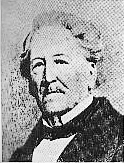Fontaine Government on:
[Wikipedia]
[Google]
[Amazon]
 The Fontaine Ministry formed the government of Luxembourg from 1 August 1848 to 2 December 1848. It was headed by
The Fontaine Ministry formed the government of Luxembourg from 1 August 1848 to 2 December 1848. It was headed by
 The Fontaine Ministry formed the government of Luxembourg from 1 August 1848 to 2 December 1848. It was headed by
The Fontaine Ministry formed the government of Luxembourg from 1 August 1848 to 2 December 1848. It was headed by Gaspard-Théodore-Ignace de la Fontaine
Gaspard-Théodore-Ignace de la Fontaine (6 January 1787 – 11 February 1871)Thewes (2011), p. 15 was a Luxembourgish politician and jurist. He led the Orangist movement and was the first Prime Minister of Luxembourg, serving for four months, fr ...
.
Background
After the Constitution came into force on 1 August 1848, the first elections to theChamber of Deputies
The chamber of deputies is the lower house in many bicameral legislatures and the sole house in some unicameral legislatures.
Description
Historically, French Chamber of Deputies was the lower house of the French Parliament during the Bourbon R ...
were organised on 28 September.Thewes (2011), p. 16 This had only become possible after popular unrest had broken out under governor Gaspard-Théodore-Ignace de la Fontaine
Gaspard-Théodore-Ignace de la Fontaine (6 January 1787 – 11 February 1871)Thewes (2011), p. 15 was a Luxembourgish politician and jurist. He led the Orangist movement and was the first Prime Minister of Luxembourg, serving for four months, fr ...
in March 1848. On 15 March, the government and King-Grand-Duke William II sought conciliation with the people.Thewes (2011), p. 12 Censorship was abolished, and a Constituent Assembly was called in Ettelbrück
Ettelbruck ( lb, Ettelbréck , german: Ettelbrück ) is a commune with town status in central Luxembourg, with a population of inhabitants.
History
Until 1850, both Erpeldange and Schieren were part of the Ettelbruck commune as well, but both ...
, which was to draft a new constitution. The text of the new constitution, which was modeled on the liberal Belgian constitution, was adopted on 23 June.
After the elections, de la Fontaine, Vendelin Jurion, Charles-Mathias Simons and Jean Ulveling were retained as members of the government; Théodore Pescatore resigned and was replaced with Jean-Pierre André.
The members of the new government received new titles: de la Fontaine was appointed President of the Government Council, and his "ministers" now had the title of "Administrator general".
The new constitution allowed the Chamber to exercise a great deal of control over the government. The government had to account for its actions in the Chamber, the Acts of the King-Grand-Duke were counter-signed by the government (which therefore took responsibility for them) and the Chamber voted on the budget.
Composition
*Gaspard-Théodore-Ignace de la Fontaine
Gaspard-Théodore-Ignace de la Fontaine (6 January 1787 – 11 February 1871)Thewes (2011), p. 15 was a Luxembourgish politician and jurist. He led the Orangist movement and was the first Prime Minister of Luxembourg, serving for four months, fr ...
: President of the Government Council, Administrator-general for Foreign Affairs, Justice, and Culture
* Vendelin Jurion: Administrator-general for the Interior
* Charles-Mathias Simons: Administrator-general for Communal Affairs
*Jean-Pierre André
Jean-Pierre or Jean Pierre may refer to:
People
* Karine Jean-Pierre b.1977, White House Deputy Press Secretary for President Joe Biden 2021-
* Jean-Pierre, Count of Montalivet (1766–1823), French statesman and Peer of France
* Eugenia Pierre ( ...
: Administrator-general ''ad interim'' for Public Works, Communes and Military Affairs
* Jean Ulveling: Administrator-general for FinanceThewes (2011), p. 13
Domestic policy
De la Fontaine had only a slim majority in the Chamber. Especially the Liberals mistrusted him. Domestically, two issues predominated in this period: the law on communes (23 October), which established limits on the communes' autonomy and government control, and the naturalisation law (12 November), which caused the government to lose confidence in the Chamber, due to which it had to resign on 2 December 1848.Foreign policy
The de la Fontaine government tried to bring about a strong integration in the German Confederation, fearing revolutionary influences from France and Belgium. The government, against the wishes of public opinion, took an active part in German politics, and even supported the decision of the Constituent Assembly to send Luxembourgish delegates to the short-livedDiet of Frankfurt Diet of Frankfurt may refer any of the sessions of the Imperial Diet (Holy Roman Empire), Imperial Diet, Imperial States, or the prince-electors of the Holy Roman Empire which took place in the Imperial City of Frankfurt.
An incomplete lists of Die ...
, where they debated over German unity.
Footnotes
References
* {{Luxembourg ministries , state=expanded Ministries of Luxembourg History of Luxembourg (1815–1890)